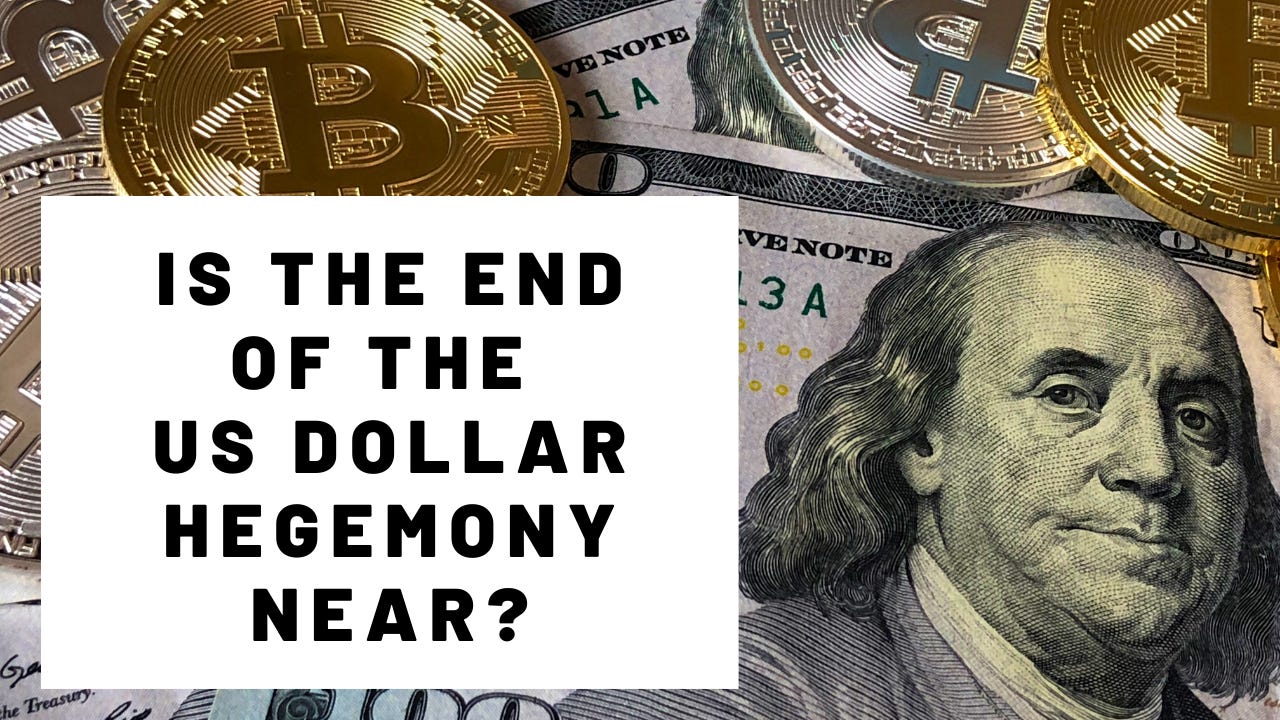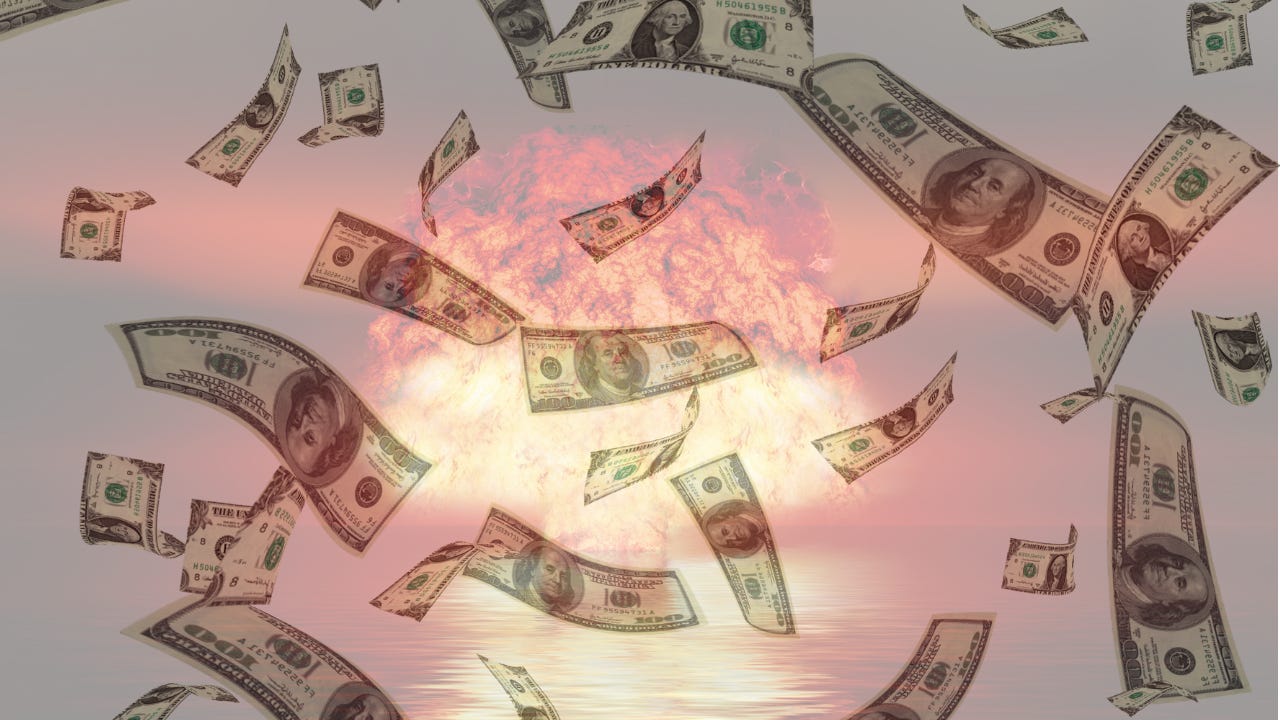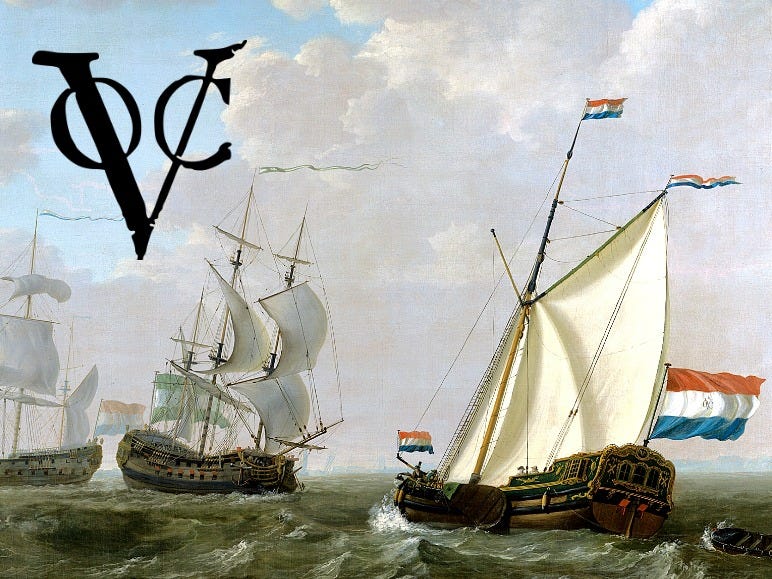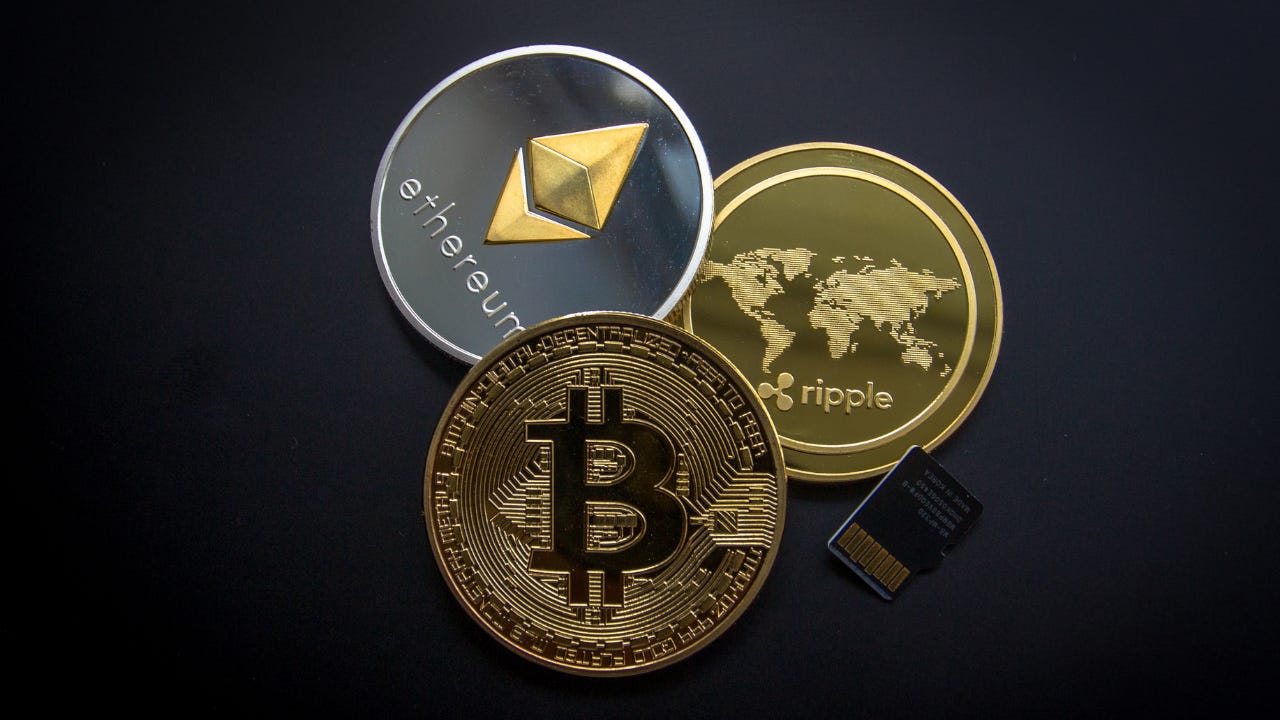World Reserve Currencies last on average 100 years. The US dollar has been the reserve currency for 76 years.
Is the end of the US dollar hegemony near?

There is no written law that says that the US dollar must be used as the global reference for international trade. Still, companies, countries, and people from across the world use it because they have trust not only in the currency but in the USA as a country and their ability to pay back holders of their money and debt.
It’s hard to imagine today’s economy without the US dollar but it wasn’t always like that, in fact there had been other currencies before that held reserve status. So how did the US dollar achieve such privilege? We need to go back a few years back when Portugal became the first Global Empire.

Power = Money
Portugal (1450 - 1530) 80 Years
In 1450, The Portuguese were the first exporters of shipborne western imperialism into Asia. They controlled the Asian Spice Trade (primarily cinnamon, cloves, and pepper) which were some of the most desired commodities during the 15th and 16th century, previously controlled by muslim traders. This allowed the Portuguese currency to be used as a global reference for trade.
Spain (1530 - 1641) 111 Years
In 1530 during the Portuguese Succession Crisis, the Spanish empire also known as the Catholic Monarchy took over and created the Iberian Union which allowed them to control the trade channels and thus the currency.
Netherlands (1642 - 1720) 78 Years
When Spain took over Portugal, they cut off business relations with their biggest client The Netherlands. The Dutch would buy spices from Lisbon and then ship them around the continent at a profit, but after the Portuguese Crisis the Dutch had to create their own trade networks from Asia.
In 1602, The Netherlands decided to form a company that could compete with the British, Spanish and Portuguese empires for a share of the Spice business. This company was called Vereenigde Oostindische Compagnie (VOC) also commonly known as the Dutch East India Company.
Forget Amazon or Apple. The biggest company in history was the Dutch East India Co.

The VOC needed a lot of capital to materialise their ambitious goals and their solution is considered the cornerstone of modern capitalism. The VOC built in the city of Amsterdam a trading house where citizens could buy shares of companies which would give them a slice of their profits later on, which essentially created the first ever stock market with the VOC being the first ever traded company in history.
The Dutch enjoyed reserve currency status for many years, they also introduced paper bills to replace coins during that time.
France (1720 - 1815) 95 Years
The VOC went bankrupt partly due to the War against the British Empire in Asia, and also because of the Tulip Mania Bubble that went burst (But that’s a story for another day). Shortly after France became a republic they invaded The Netherlands and conquered them.
The end of the Anglo Dutch wars saw the currency issued by France become the dominant trade currency.
UK Pound 1815 to 1944 (129 years)
As Britain became the dominant trading country with the rise of the British East India Company, the British Pound became the dominant world trade currency.
British companies were the leaders in the industry and British insurers became the main insurers of trade globally. Until the start of WWI which saw the decline of the British East India company and the British pound in world trade.
US Dollar 1944 till date (76 years so far)
After the first World War, the US dollar became the main trade currency as the US economy played a key role in world trade. In 1944, The Bretton Woods system established a currency regime where the US dollar became the principal reserve currency directly pegged to the price of gold. However, during the 1970s, due to a loss in gold reserves due to wars between the US and other countries, several countries started to lose faith in the dollar and asked for their Gold back, the President at that time, Richard Nixon released the dollar from its peg, creating the floating currency markets that exist today.
Taking a look at the history of modern currency reserves, one thing remains constant and that is that every time a country owns the world’s reserve currency they abuse that power to obtain an edge over the rest of the world and that edge is inflation.
The ability to increase the supply of money in order to fund wars and expansion comes at a cost which is the dilution of purchasing power. Essentially you can print more money but you cannot print jobs, food, or economic wellness. Having a powerful currency is a consequence of a good economy not vice-versa.

The modern money
Nowadays the dollar represents only 61% of the international currency reserves, which allows the US to have a larger trade deficit without directly impacting other economies or currencies. Other currencies such as the Euro represent over 20%, and the other 19% being composed of British pounds, Japanese Yens, Canadian and Australian dollar, Chinese Yuan, and Swiss francs.
Which currency is the next Reserve Currency?
There are many opinions that shape up this argument, I have my own set of opinions which I will share right now, this doesn’t mean that are highly probable although I will argue that are possible.
Gold or an index of commodities acting as a reference
That means going back to the Gold standard or some form of commodity-based standard limiting the power of governments and the elasticity of money, this means that the government cannot provide stimulus to the economy or devalue the currency which is good for people’s savings but bad for trade.
Chinese Yuan being the dominant currency
China is a leader in global trade and their currency is already held as a global reserve, but their power could become even greater due to their efforts in creating what is known as a central bank digital currency or CBDC using blockchain technology. This currency can also be used by countries trying to escape from US sanctions.
China has been accumulating Gold for a few years now, making it the 6th country in the world to own more Gold.
Bitcoin
In the beginning of this article we mentioned that there is no written law saying that the US dollar should be used as the currency of choice, however, people’s faith in the currency creates a network effect that makes it a convenient currency.
This could be the most libertarian solution but if everybody in the world starts owning at least some quantity of Bitcoin it would become the world’s reserve currency, bringing to an end government control over money.
![Spider-Man Logo [PDF] Vector EPS Free Download, Logo, Icons, Brand Emblems | Cartoon clip art, Spiderman coloring, Spiderman mask Spider-Man Logo [PDF] Vector EPS Free Download, Logo, Icons, Brand Emblems | Cartoon clip art, Spiderman coloring, Spiderman mask](https://substackcdn.com/image/fetch/w_1456,c_limit,f_auto,q_auto:good,fl_progressive:steep/https%3A%2F%2Fbucketeer-e05bbc84-baa3-437e-9518-adb32be77984.s3.amazonaws.com%2Fpublic%2Fimages%2Ffb0e3cf0-4cde-49cc-8e06-732f76dc984d_1030x1414.jpeg)
“With great power comes great responsibility”
-Benjamin Richard Parker (Spiderman’s uncle)




Do you really think that the government would sit around and let us have control over our own money. They would eventually convince people that we need government to protect us from Covid, from Putin, from Weapons of Mass Destruction, or the next boogy man. For some reason the world is fearful enough to believe in the intentions of evil men.